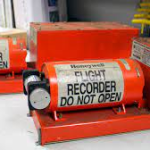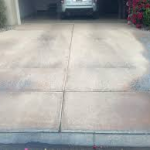Upgrading your furnace can be a challenge for any homeowner. Not only is this an expensive piece of equipment that is absolutely essential to keep your home warm, but it can feel like an intimidating task due to all of the different options that are available.
Take a look and you’ll find a myriad of models and manufacturers out there and you’ll want to do your homework on all of them. Prices, customer reviews, brand reliability, it’s all important to understand as you try to determine the furnace that’s right for you.
But before you do all of that, you need to consider four critical factors to make sure your upgrade is done properly. Richmond’s heating and air experts are here to help, we’ve compiled these tips to help this process go easily and, more important, without paying more than you have to:
1. Your Current Furnace
First and foremost, are you absolutely sure your furnace requires an upgrade. One of the biggest (and most costly) mistakes that homeowners commit when it comes to their furnace is premature replacement.
Upgrading it too early can cause you to lose out on the money you’ve invested into the furnace you currently have installed. In order to avoid this from happening, you should check to see how old your current furnace is and then you can make a determination as to the necessity for an upgrade.
If your furnace is older than 11 years, it’s likely an ideal candidate for an upgrade. Another factor to consider as to the age of your current furnace is the number of repairs that have been performed on the unit.
Finally, think about efficiency. Have your heating bills increased despite no such increase in the use of your heating? If so, then it’s possible your furnace is no longer an energy efficient unit and it might be time for an upgrade. Having the furnace rated for an exact efficiency reading will help you find out if the unit has lost a step. Any furnace running at under 90% efficiency will need to be upgraded.
2. Do Your Homework

Now that you’ve determined there may be some reasons pointing to the potential for upgrading your furnace, do your homework as to the the system you have installed in your home. Check out everything you can about your furnace by going online.
This includes tracking down any and all important data about your unit and understanding everything about it. Warranties, customer reviews, even any applicable codes or permits that pertain to the furnace you currently have in your home.
Arming yourself with as much information as possible can prove invaluable when it comes time to have your furnace upgraded. This way you can ask your HVAC professional all of the right questions and you will know if you’re being given factual answers and you can better comprehend what issues you’re facing with a potential upgrade, if any.
3. Plan Ahead

Upgrading your furnace should be done when you aren’t going to need to rely on it to keep your home warm. That means opting to have the work done during the summer, so you won’t be without a furnace during the chilly months ahead. You certainly don’t want to be at the mercy of a busy maintenance season as the days get shorter and the nights get colder. Simply put, don’t put this off. Get the work done now so you’re ready for when the temperatures outside drop.
Most upgrade jobs don’t take too long, maybe a day or two at the most, but technicians can get backed up what with all of the other homeowners waiting until the last minute to have their systems and units upgraded and replaced. So look ahead to the future and think about you and your family’s comfort when the furnace is needed most. Get the work done sooner than later.
4. Routine Maintenance
Sometimes a furnace may need an upgrade, sometimes it may not be necessary. A good way to do this is by scheduling a tune-up. Have a technician come out and check over your entire system and find out where there might be some problems or potential problems that could arise down the line.
During this process, your technician should be able to ascertain whether or not an upgrade is absolutely necessary and offer some recommendations as to how you should go about setting out on that process. The earlier you know, the sooner you can act and have the upgrade performed before you need to start heating your home.





















+ There are no comments
Add yours